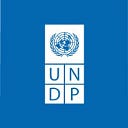Spearheading the use of blockchain technology to tackle plastic pollution in Azerbaijan
Hopes are high that 2021 could mark the beginnings of a plastic-free future for Azerbaijan.
The first of July saw the introduction of a new law banning the production, import and sale of many single-use plastics, including all plastic cutlery, plates and cups.
In the same month, UNDP’s Accelerator Lab and the country’s young SDG Ambassadors took their first steps in harnessing the power of blockchain technology to tackle the vast issue of plastic pollution.
The urgency of tackling this problem is clear.
Worldwide, some 13 million tons of plastic end up in the oceans each year, leading to an annual death toll of at least 100,000 marine animals. And while it takes over 100 years for most plastics to degrade in the environment, over a million plastic bottles are bought every minute and over 500 billion plastic bags are bought each year.
Tackling plastic pollution will ultimately require fundamental changes in the design, production and recycling of plastic products. But it will also need each of us as individuals to change our behaviour.
In Azerbaijan alone, for example, government statistics show the average person produces about 24 kg of plastic waste annually. As in other countries, moreover, about 50% of consumer plastics in the country are single-use.
Tackling the problem of plastic waste was the very first challenge that Azerbaijan’s young SDG ambassadors resolved to tackle on being appointed.
The SDG Ambassadors are a group of talented young Azerbaijani volunteers recently appointed by UNDP and the Ministry of Youth and Sport to promote and raise awareness of the 17 Sustainable Development Goals, especially among the country’s youth.
The Ambassadors and the Accelerator Lab have decided to join forces and they recently started promoting behavioural change among the country’s citizens in an innovative way — by partnering with Spatrix — an online platform established by a group of young Azerbaijanis to tap into the potential of blockchain technology to contribute to the social good.
By linking volunteers with business leaders and changemakers, the whizz-kids of Spatrix are making use of blockchain as an inspiring technology to serve as a virtual thread connecting the world, reducing the costs and increasing the transparency of efforts to accelerate and amplify the social impact of initiatives to achieve the SDGs.
Any companies and organizations planning to carry out action for social good can easily recruit volunteers by registering with the site and issuing a ‘Spatrix Challenge’.
Spatrix challenges can be small-scale and short-term initiatives such as clearing beaches of plastic waste, or large-scale and long-term projects in line with companies’ corporate social responsibility. Through these ‘challenges’, people with the skills needed to achieve a range of social goals can be recruited from among large groups of volunteers across the globe.
Volunteers who achieve outstanding contributions to these challenges, including individual interns keen to make a difference by raising awareness and boosting recruitment, become ‘Spatrix Champions’. As champions, they are awarded points that can be exchanged for a variety of goods available on the platform’s online store, including free Internet access, free music from iTunes, free tickets for public transport and other incentivising benefits.
Partnering with Spatrix, UNDP’s Accelerator Lab and the young SDG ambassadors issued a three-day Spatrix Challenge in July asking volunteers from all over the country to help contribute to reducing plastic pollution in Azerbaijan by posting recommendations to avoid single-use plastics on their social media channels and by explaining their own collective and individual contributions.
Within just three days the word was out and the target of recruiting 100 champions was successfully completed.
The next step is to use the blockchain platform to task the champions with documenting the types of plastic waste they most frequently encounter in their local areas.
The champions’ efforts will help make more informed decisions about what kind of campaigns and actions are necessary to ensure a greener and plastic-free Azerbaijan for generations to come.
